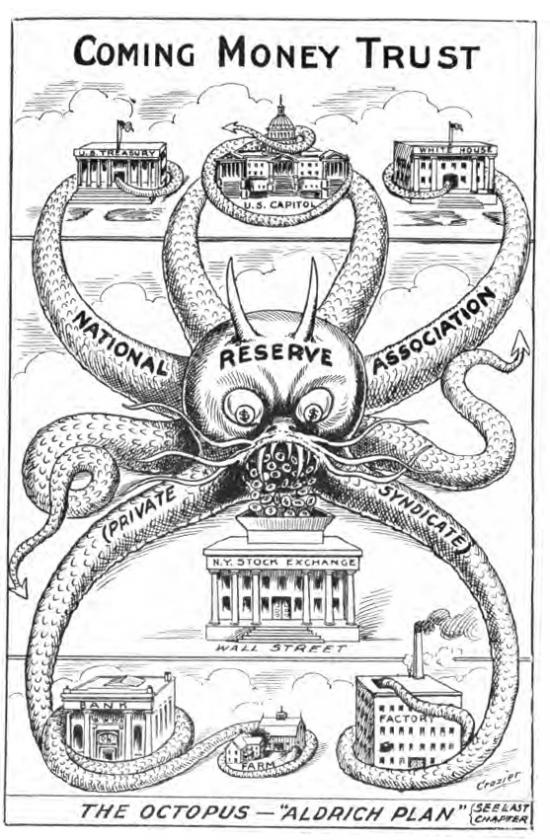My intro and 'Where has all the Money Gone?'
Intro
I just joined Steemit and despite seeing its compelling coolness had resigned myself to likely just being a commenter and curator on the platform. My days are already pretty full, being partially disabled with rheumatoid arthritis, and a mum of two who also owns a printing business ( http://www.ticketprinters.co.uk ) and with an unhealthy obsession with cryptocurrency to take care of.
But as I typed another long answer to a question asked on Facebook, whilst simultaneously knowing that my reply would be read to the end by no more than one person (at the most), it occurred to me... I already blog... I just don't get paid for it and none of the people on my friends list have any knowledge of or interest in any of the topics that interest me - economics, anti-authoritarianism in health and politics and crypto.
Where has all the money gone?
So here is my reply to my friend's question 'Where has all the money gone?' that they posted in response to this article https://www.theguardian.com/education/2017/may/23/homeless-teachers-ashamed-housing-crisis-professionals?CMP=fb_gu .
(Please feel free to comment and point out any errors. I live in the UK, so my blog post below is slanted towards UK politics as we've got a general election coming up in a couple of weeks' time.)
"So the problem begins with the fact that our system of money is debt based, which means that new money is created more or less entirely via the creation of loans - loans to buy houses and cars etc. When the loan is created the interest needed to pay the loan is NOT also created. Thus, our banking system (and by extension our economy) requires our debt load to grow ever bigger and bigger in order that the money supply doesn't start to shrink. A shrinking of the money supply through repayment of loans instantly reveals the bankruptcy of our banking system, because no-one will then have the money to keep paying the interest on the loans, thus rendering the loans themselves worthless liabilities instead of assets.
This is what happened in 2008. So many 'liars loans' were lent out at such a pace that people were defaulting left, right and centre, which had the effect of shrinking the money supply. When a loan is paid off (or the keys for a house handed back) the money that was created when the loan was issued is then destroyed. If this happens enough times over in quick succession it reveals the bankruptcy at the heart of the banking system. Those mortgage loans that they had on their books that gave the banks a big market cap are suddenly marked as worthless liabilities and a loss of confidence occurs. Markets begin to short the banks and share prices plummet. Everyone panics.
At this point the banks all got very self-righteous and told the governments to hand over the shortfall in mortgage payments that they had been counting on, thus keeping their balance sheet intact, or else they'd plunge the world into financial chaos. The government were backed into a corner (see the rules of Monopoly - the bank never goes bankrupt, they just create new money by writing on bits of paper).
In order to hand over this cash, the governments had to resort to QE, commonly known as money printing. This meant issuing bonds and allowing the banks to trade in the worthless mortgage debt at their full face value in return for the safest investment possible, government bonds (i.e. the promise of yours and my tax receipts for the next 10, 20 and 30 years).
In order to make sure this strategy didn't bankrupt the governments they also had to lower interest rates to near zero and keep them there...forever. Even a mild reversion to the mean, say of 4-6% interest would instantly bankrupt our governments overnight.This happened all across the world, so now all the world's governments are up to their ears in debt and no-one can tolerate a rise in interest rates without turning into Venezuela overnight.
So the net effect of zero percent interest rates and quadrupling the money supply is that there is too much money chasing the same amount of goods, so inflation begins to rise in real assets, such as houses, food, energy etc. And money has steadily lost its value at an even faster rate than it usually does. Just look at how much its value has crashed against bitcoin, for instance. It's harder to see the devaluation occurring against other countries currencies because they're all madly devaluing their currencies as well. They're more or less taking it in turns to devalue. At the moment it's the US's turn. It was us last year.
One thing governments don't tell you when they talk about paying down the deficit is that if the government in any way lowers the public debt burden, that there has to be an equal rise in the debt burden in the private sector - i.e. we have to take out more loans to prevent the banks from collapsing in on themselves. So whenever the Tories talk about austerity and reducing the deficit, what they're actually saying is that as the government owes less, the people of the UK must owe the same amount more to make up for it.
So they sell off all our income producing assets, such as the railways, energy, BT, post office, etc - all the things we've spent generations building up with our effort and taxes, and 'lower' the deficit, whilst simultaneously depriving us of those income producing assets, enriching their mates, and forcing us to take on even higher debt levels to prevent systemic collapse.
The other end product of zero percent interest rate policy is that the money is cheapest the nearer you get to the money spigot. So those in the banking sector get to borrow and use money at zero cost, whilst the further away you are from the money spigot, the higher the borrowing costs become (https://www.theguardian.com/global-development/2017/jan/16/worlds-eight-richest-people-have-same-wealth-as-poorest-50). So teachers and nurses and students still have to pay exorbitant interest rates, whilst banks pay nothing and can use money to make more money.
And at the same time, house prices continue to soar because of course it's in banks' interests to have house prices as high as possible. After all, they pay virtually nothing to create loans and then get the loans paid back with interest. And whilst interest rates are at an all time low, they need the cost of the homes to be as high as possible to maintain their margins.
Also, pensioners, and pension companies and those forced to put money into safe assets such as the bond market are getting little to no returns on their money. Yet another way in which savings are now treated as worthless. And of course the government being as desperate for money as they are after devaluing the pound and keeping interest rates artificially low for a couple of decades, would now like to claw back the increased value of your homes from the house price bubble they inflated by repossessing the equity in homes after we pass away.
So, is all this inevitable? Yes, is the short answer. In a debt based system of money this happens over and over. Countries run up the debt until they hit the buffers and then there is a currency reset. It has happened over and over in history and is happening again now, right under our noses as we speak. This time around, however, we have created a different kind of monetary system, cryptocurrency, where money is created on a mathematical schedule by various forms of work - either mining (hashing) for new coins, or in the case of a currency called Steem via creation and curation of content. A paradigm shift is in progress, and value is moving from the old system to the new. To see it happening in real time go to www.fiatleak.com. The benefits of cryptocurrency are that no government can control the issuance of this currency (so no more QE or devaluation is possible), and no government can cut off users from using this currency, thus levelling the playing field and getting rid of the notion of being unbanked. Peer to peer loans will also be possible, making the cost of borrowing more reasonable and preventing the interest apartheid situation we have currently.
My advice would be to buy a little crypto, preferably bitcoin as it's the safest option currently, and watch as all the money flows from the old financial system into the new one. The government won't tell you this is happening, but it is, and quite quickly too. Currencies tend to run into the buffers every forty years or so, and our current monetary system is way overdue a reset. Sorry that was so long, but it's complex but also terribly important."


Welcome to Steemit @spacehoppa - I'm glad to see that you've found a place where you can blog and there are readers that will appreciate your interests.
Welcome to the jungle!!! but it is a beauty and good jungle
Welcome! Well thought out. Followed you :)
Nice intro!! Welcome!! Followed you!!
Very nice post you have !
And very importent topic you chose.
Welcome to society of open minded people =]
Will follow for more !
=]
Thank you very much! I'll follow you back.
An unhealthy obsession with crypto - what can be further from the truth. If you are not obsessed with crypto then I would say you are not all there.
Welcome to Steemit and enjoy the ride. The community is great and all very helpful.
LOL, right on!
Welcome to Steemit. Think your going to fit in well.
Welcome on Steemit ;) Nice to have you here :) Great article! i think you are right: the debt based system is oldschool. I'm looking foreward to read more and I follow you ^^
Thank you so much for the intelligent and thoughtful post. You are describing many things that I already know to be trust in a very clear and logical manner. Thanks for helping us wake up.
Upped and followed 👍One of the most interesting introductions I have read. I believe in the crypto too.
Steem on!